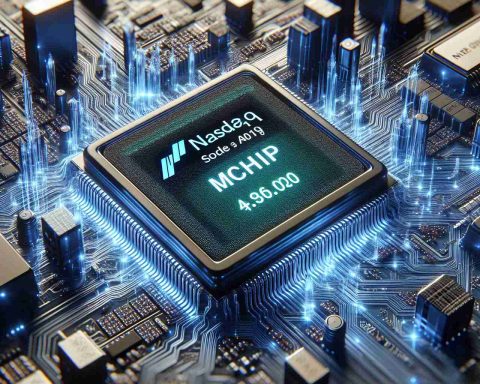Microchip shares are soaring as the smartphone industry braces for its next big transformation. As technology advances and consumer demand for cutting-edge features grows, microchip manufacturers are seeing a surge in interest from investors—marking a new era in smartphone tech.
The emergence of AI and 5G technologies is driving this renewed focus. Microchips are no longer just about processing speed; they are becoming central to enabling AI capabilities directly on devices. This shift means that smartphones are gradually becoming smarter, with the ability to process complex algorithms in real-time, right at the user’s fingertips. As these capabilities expand, the demand for high-performance chips that can handle these tasks is critical.
5G connectivity is another factor influencing the increasing value of microchip shares. As the world embraces faster and more reliable mobile networks, the need for compatible and efficient chips continues to rise. Microchip manufacturers are investing heavily in research and development to ensure they meet these stringent requirements, simultaneously pushing microchip companies to the forefront of technological innovation.
This trend is more than just a market phenomenon; it’s setting the stage for the smartphones of tomorrow. These advanced microchips will empower devices with enhanced functionalities, greater energy efficiency, and the ability to support more immersive experiences such as augmented reality.
In conclusion, the rise in microchip shares reflects more than just market dynamics; it signals a pivotal shift in how smartphones will evolve, offering more robust, intuitive, and interconnected experiences for users worldwide. The horizon looks promising for both the tech industry and consumers alike.
The Hidden Challenges of the Microchip Surge
As microchip shares soar, largely driven by burgeoning AI and 5G technologies, there’s a deeper narrative shaping how these innovations impact our lives. Beyond the obvious benefits lie significant challenges and controversies that need attention.
Environmental and Ethical Concerns: The surge in microchip production demands vast resources, including rare earth materials and substantial energy consumption. This raises questions about the environmental footprint of the tech sector. Are smartphone advances worth the potential ecological cost? The pressure on countries rich in these minerals, often developing nations, can lead to ethical concerns about labor conditions and sustainable mining practices.
Economic Implications: While microchip advancements promise enhanced smartphone experiences, they also drive up costs. Will consumers bear these costs for advanced functionalities they might not fully utilize? There’s also the conundrum of tech disparity, where wealthier nations surge ahead with new technologies while poorer countries struggle with digital access gaps.
Data Privacy and Security: With AI-driven capabilities embedded in smartphones, data privacy becomes a critical issue. How secure is the personal data processed on these high-performance chips? Manufacturers and governments must address these vulnerabilities to prevent misuse.
Advantages vs. Disadvantages: The advantages of smarter, faster, and more connected phones must be weighed against these disadvantages. The balance could shape consumer acceptance and the sustained growth of this industry.
As the tech world evolves at breakneck speed, the microchip boom requires a holistic approach, considering both the exhilarating possibilities and the potential pitfalls. For more insights on tech evolution, visit the BBC and WIRED.























